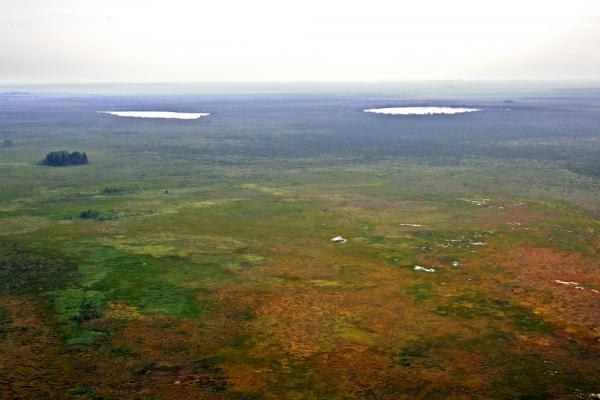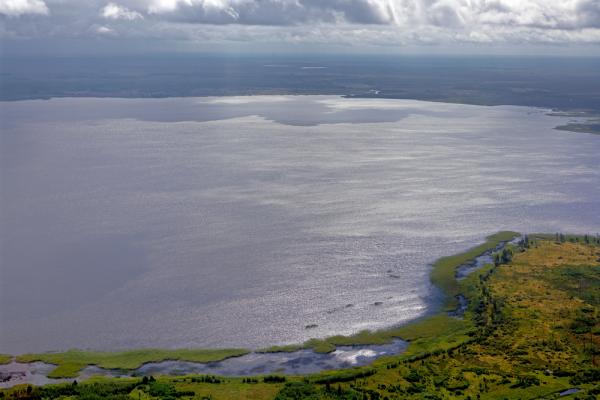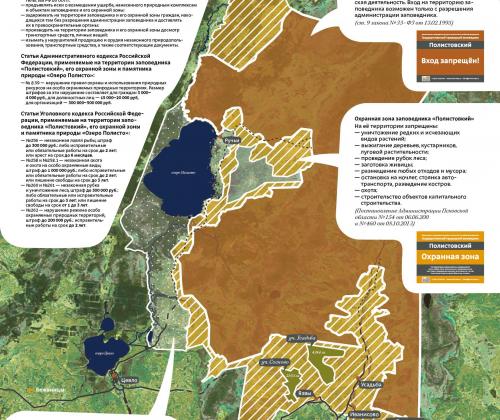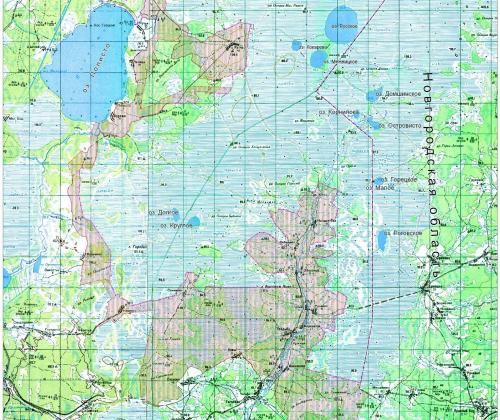The Polistovsky Reserve is located in the Bezhanitsky and Loknyansky districts of the Pskov region and protects a part of the Polistovo-Lovatskaya bog System, one of the largest in Europe. This unique ecosystem is very vulnerable and needs special protection.
Types of protected areas of the Polistovsky Reserve
To preserve the natural riches of the region, two types of protected areas have been identified, each with a specific regime of visits and rules of conduct:
1. The territory of the Polistovsky Reserve is 37,837 hectares; any nature-using activity is forbidden here, and even being on the territory without the permission of the reserve administration is strictly forbidden.
2. The buffer zone was created to protect directly the territory of the Reserve from anthropogenic influences from the outside, it is a kind of buffer between the areas of active nature management and untouched wildlife. The area of the buffer zone of the Polistovsky Reserve is 17 279 hectares.
It is forbidden on the territory of the buffer zone of the reserve:
- destruction of rare and endangered plant species;
- vegetation burning;
- carrying out clearcuts;
- harvesting of oleoresin (tree resin);
- placement of any waste and garbage;
- an overnight stop;
- making fires and parking vehicles;
- hunting and construction of capital facilities.
Nature Monument "Lake Polisto”
Nature Monument of regional significance "Lake Polisto" is the largest water body of Polistovo-Lovatskaya bog system and the 4th largest lake in the Pskov region. It has a great natural value to maintain the hydrological regime, landscape and biodiversity of the region. The area of the nature monument is 8,241.8 ha.
Within the boundaries of the natural monument "Lake Polisto" is prohibited:
- water pollution;
- destruction of plants and animals;
- works that change coastal water bodies (e.g., creation of dams and weirs on neighboring rivers);
- use of motorboats (the exception here is made only for the residents of the villages Ruchy, Chilets, Polisto and Veryazha, as well as for the Reserve's employees who perform official duties);
- spring hunting;
- Fishing from the melting of the ice until June 15;
- plowing a land;
- making fires and staying overnight outside of designated areas.







